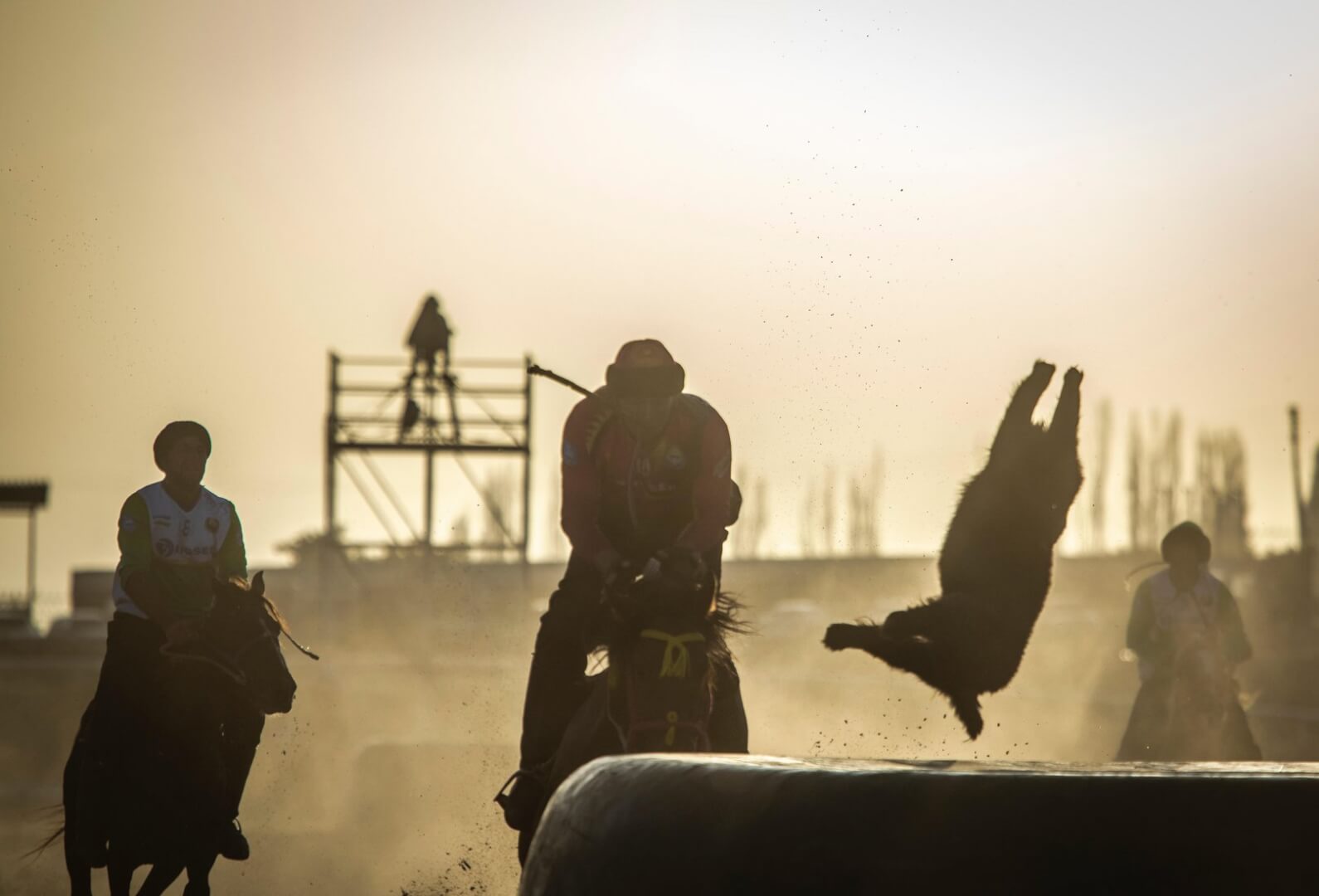Explore the World Nomad Games with Kairi Aun
Change is inevitable. And while it’s often done for progress, it can carry a consequence that is often difficult to contend with – the loss of culture.
Language is often one of the most obvious losses. There are fewer than a thousand speakers left for a third of the world’s languages. And every day, that number dwindles. With the loss of the language, comes the inability to pass on old traditions, societal customs, and a way of life that brings colour and meaning.
It’s a shame when there is always so much to learn from cultures different from our own. Travel would be much less interesting too.
Archery is popular at the World Nomad Games
The significance of the World Nomad Games
Fortunately, there are some great initiatives and events trying to preserve culture. One of the most exhilarating is the World Nomad Games. It’s held every two years to celebrate and preserve ethnic sports and traditional games in Central Asia.
It’s not just about competition though. While many at the games take their sport seriously, for others, it really is about celebrating the nomadic way of life. And at a time where we’re questioning the way we live and the way society is structured more and more, the lessons from the event could not be more pertinent.
Wrestling on horseback brings some earth-thumping takedowns
What it’s like to attend the World Nomad Games
Alamy photographer Kairi Aun has a real passion for cultures around the world and understanding different ways of life. Last time we spoke to her, she covered the Mongolian Ice Festival.
This was a slightly higher adrenaline affair with a spirited opening ceremony followed by sports ranging from horse racing, stick wrestling, archery, and even ethnic board games.
“People were just having fun and enjoying themselves”, Kairi reminisces. “While the competition becomes fiercer in the finals, it really is about celebrating the sports and preserving the traditions”.
The cultural significance of the event is omnipresent. All around, everyone can be seen dressed in traditional garbs, singing songs or playing games. Hundreds of yurts are also dotted around the valley. If you’re lucky, you might stumble upon one lavished with traditional Central Asian cuisine where locals will encourage you to have a nibble.
Balance and control on the horse is a highly advantageous skill at the games
Polo but with a goat carcass
The headline event is kok-boru. This sport is taken more seriously than others and after a quick glimpse of the action, it’s easy to see why.
It resembles a game of polo but with a decapitated goat carcass. Two teams fight for control of the ‘ball’ – I’m not using ‘fight’ lightly here because riders are equipped with a whip to fend off their opponents – once they do, they must carry the carcass to one end and chuck it in a giant bucket to score a point.
The game was originally played with a wolf carcass when nomadic Kyrgyz would kill wolves that tried to eat their livestock and thus threaten their livelihood. After a few generations of shepherds passing the time playing kok-boru, the sport has turned into a cultural symbol of nomadic life.
Kok-boru is the headline event as riders work in teams to seize the headless goat carcass
As you can imagine, it’s a barnstorming sport ripe for an almighty spectacle that would trump any Olympic sport. It’s easy to get too caught up in the action as Kairi found when she was tangled in a perilous position.
“I was trying to find a more interesting angle – to really smell and feel the action.”
Kairi’s wish certainly came true in this moment as eight competitors, focussed on securing possession of the goat carcass, came hurtling straight towards her.
If I’m going to die, I will make the most of the situation and get some good shots in.
“I really didn’t have an exit strategy in mind. I quickly looked over my shoulder to find a 6-metre wall stretching in both directions. With no escape, there was only one thing to do – capture the scene. So I hunkered down and decided that if I’m going to die, I will make the most of the situation and get some good shots in.
“The horses stopped just in time to not hurt me, but I was totally covered in dust. I found myself smiling as I knew I had caught the action from just the right angle.”
Putting yourself in perilous places means you get an angle nobody else has
A more sustainable way of life
Nomadic living has been a part of human existence for a long time. It has sometimes attracted negative stigma in the west but that seems to be slowly changing as more and more people look to work remotely and become more mobile.
It forces you to live with less, and to consume less. As we learn to become more gentle and kinder to the planet, nomadic living certainly has its charms and bonuses. If we can preserve traditional sports and ethnic cultures along the way, then perhaps the World Nomad Games should have a special place in the world of sport.
Looking for travel content? Fuel your wanderlust with travel rich content from all around the world along with Enterprise services.




